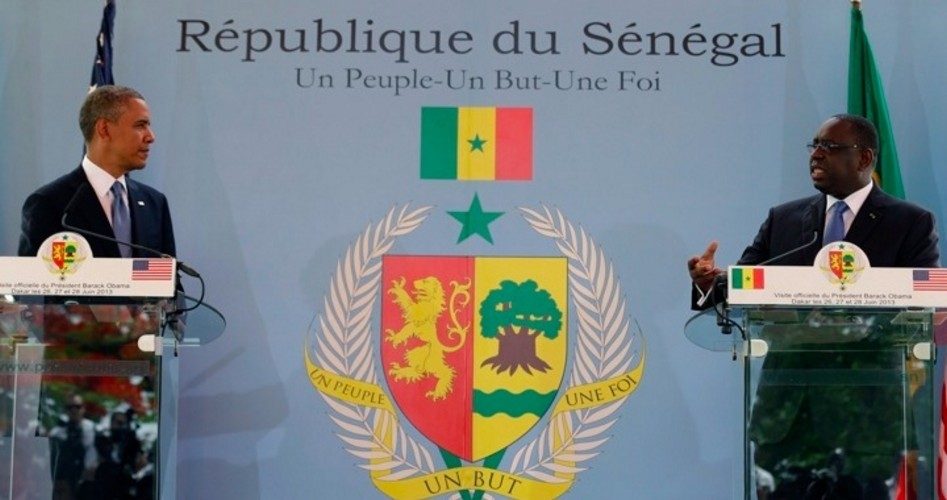
During his recent trip to Africa, President Obama was the focus of some no-nonsense instruction about homosexuality both from citizens as well as top African religious and government leaders. At a joint press conference June 27 with Senegal’s president, Macky Sall (shown), Obama declared: “My basic view is that regardless of race, regardless of religion, regardless of gender, regardless of sexual orientation, when it comes to the law, people should be treated equally, and that’s a principle that I think applies universally.”
Responding to Obama’s comments Senegal’s President Sall quickly made it clear that he and his nation do not see eye-to-eye with America’s chief executive. “We are not ready to decriminalize homosexuality,” Sall emphasized, with his people and even the nation’s major newspapers expressing their overwhelming support.
In fact, many of Senegal’s citizens thought their president should have been more emphatic. “He should have said, ‘This can never exist in Senegal; this can never happen here,’” Tidiane Gueye, a resident of Senegal’s capital city of Dakar, told the New York Times. “Senegal is 95 percent Muslim,” Gueye added. “As a Muslim country, we will not permit laws that allow gays to marry.”
Another Senegalese, retired military officer Bouramon Ndour, applauded Sall, saying that “he did extremely well,” in standing up to Obama. Speaking of homosexuality, Ndour said that “nobody here can accept that … we are absolutely staunch on it. Look, this is a Muslim country. Over our dead bodies!”
Kenya’s leaders were just as adamant, with Deputy President William Ruto, speaking at a Catholic church on June 30, saying that for those, like Obama, who embrace homosexuality, “that is their business. We believe in God.” He added that “the nation of Kenya is a God-fearing nation.”
Similarly Nairobi’s archbishop, Cardinal John Njue, said that Obama might as well “forget and forget and forget” about the the legalization of homosexuality in Africa. “I think we need to act according to our own traditions and our faiths,” he said. Speaking of America, Njue said that “those people who have already ruined their society … let them not become our teachers to tell us where to go.”
Sheikh Saliou Mbacke, a Muslim leader in Senegal, said that faith leaders throughout Africa have a duty to speak out against homosexuality, especially if there is pressure to make the African people change their views. “The subject of homosexuality must not be used as a tool to blackmail and coerce society to defy God’s command, which is more important than any world power,” he said. “We will oppose any manner of arm-twisting that threatens us to embrace it in our societies.”
In Tanzania, Anglican Bishop Michael Hafidh said most African leaders would have preferred that Obama keep his opinions on homosexuality to himself and to focus on economic issues facing the continent. Homosexuality “is not an important issue for us now,” he said. “We don’t recognize or even think of it, let alone its legalization. I think since we have a lot of resources, our discussions with the rest of the world should be more about investments and trade.”
A total of 38 countries throughout Africa, where the majority religious faiths are Islam and Christianity, have laws against homosexual conduct.
Photo of U.S. President Obama with Senegalese President Macky Sall: AP Images


